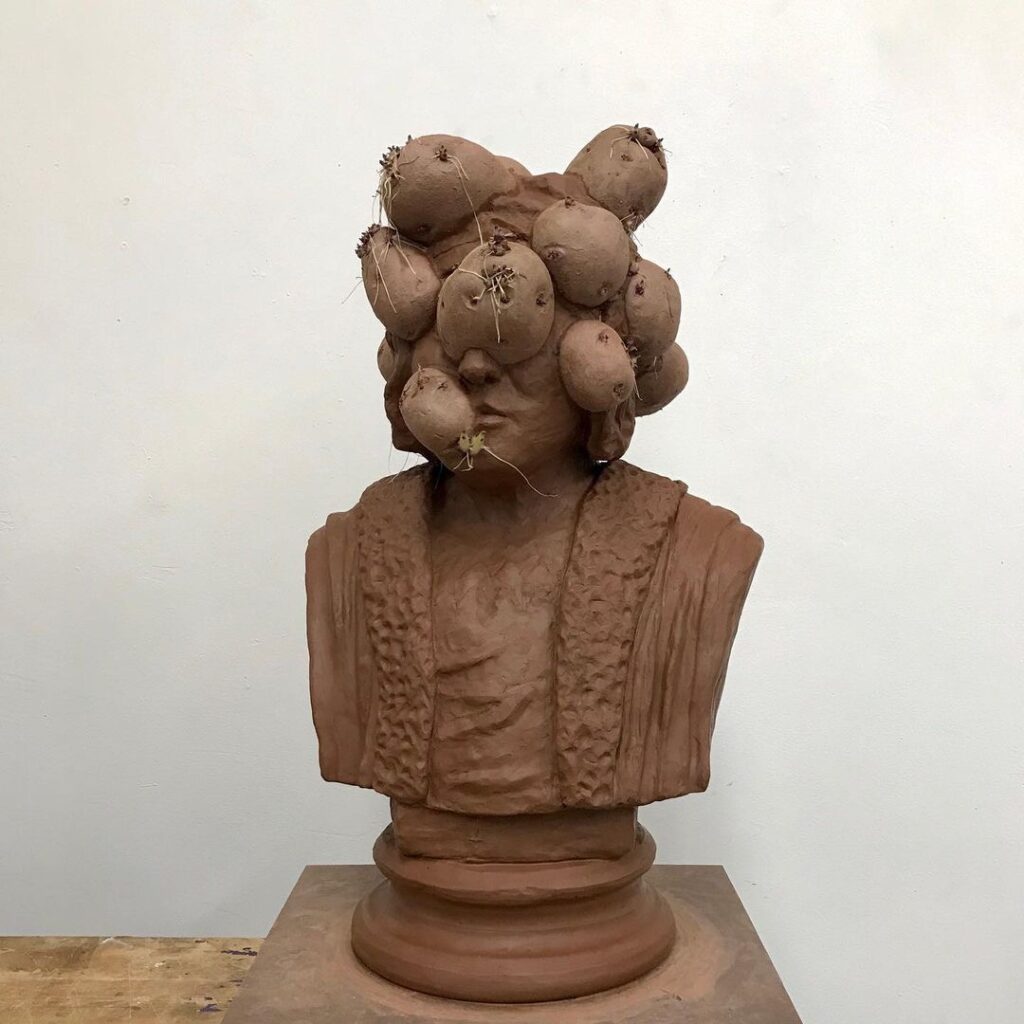An edition of monumental busts based on Antonio Canova's ubiquitous image of Columbus found in plaster reproductions across the United States. This work is designed to exist outdoors in clay, with industrially farmed potatoes embedded in the head. Over time the potatoes will sprout and take over the form.
The colonial history of the potato is intricately tied to modern industrial farming and today's pesticide industry. A postcolumbian import from the Andes, potatoes are one of the US's top commercially farmed products, commonly used for processed and fast foods. Their introduction in Europe nourished the Industrial Revolution's workforce, whose exponential growth correlates with that of the potato plant. European nobility wore potato blossoms to public events to encourage the working class to embrace the new food, which was cheap and easy to grow. Susceptible to pests and blight, this tuber cannot be farmed monoculturally without varied and frequent chemical interventions, at the expense of the land, waterways, and countless species (including our own). This unsustainable practice is leading to a land fertility crisis and is a major contributor to climate change.
Wild potatoes in their native habitat are toxic to humans but can be consumed if eaten with clay, which adsorbs to the toxins and removes them from the body.
A plaster edition of this work exists to meet the sterility and longevity requirements of historical collections and museums.
Join The List
Want to hear from us occasionally? Subscribe to our newsletter
